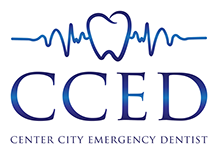When you’re getting a check-up at a general dentist, ”bone loss” can be two of the scariest words you hear. We want you to help you do everything we can to make sure you never get there.
How can it be avoided? How can you avoid having pains associated with loose teeth and needing an emergency dentist at 2 a.m.? Like most dental issues, it’s a partnership between you and your dentist that can avoid the road to gum disease.
Stage 1: Gingivitis – As you probably know, our mouths are full of bacteria. It comes from the food we eat, the people we kiss, and the times we put our hands to our mouth. Some of this bacteria love to eat at the enamel of teeth, and some like to dine on the food you leave in your mouth. The gummy stuff that forms on your teeth, mostly where the teeth meet the gums, is called plaque. This is what you have to remove daily with brushing and flossing. If it’s left too long, it becomes tartar and can only be removed by a dental professional.
Gingivitis can cause red, swollen, bleeding gum, and it’s important that you and your dentist treat it before it moves on to…
Stage 2: Periodontitis – While gingivitis is technically a form of periodontitis, it can be reversed and isn’t destructive like other forms of periodontitis. This is when the gums begin to pull away from the teeth and the bacteria are able to get deeper, and a constant infection occurs as your body fights the invaders. When it reaches this stage it’s often called “chronic periodontitis.” While all is not lost and a dentist can help you manage it, bone loss has started and you’ll want to stay on top of the situation so that it doesn’t get worse.
Stage 3: Tooth Loss – Go for too long without seeing a dentist and this may be unavoidable. Too much bone loss has occurred and the bone can no longer hang onto the tooth. If the tooth is loose it might have to be extracted. Tooth implants will then be necessary to put the needed pressure on your jaw so that the bone in our jaw doesn’t deteriorate.
Here’s the best part…catch it at the gingivitis stage and there’s a good chance you’ll avoid stages 2 and 3 altogether. With proper brushing and flossing (and regular dental visits), some people can reverse the process of gingivitis in as little as a month. Visit us as your general dentist and you might be able to avoid us as your emergency dentist!
